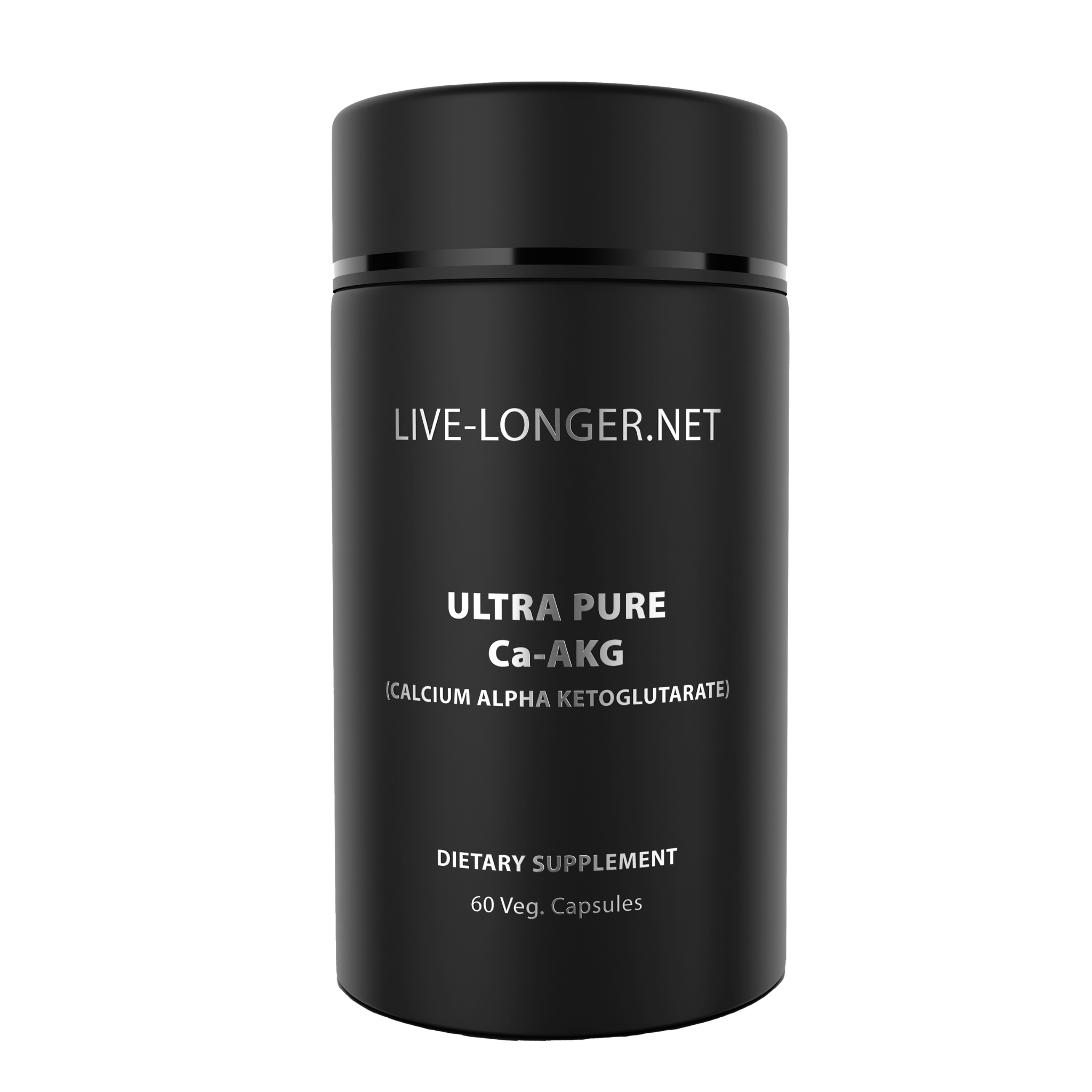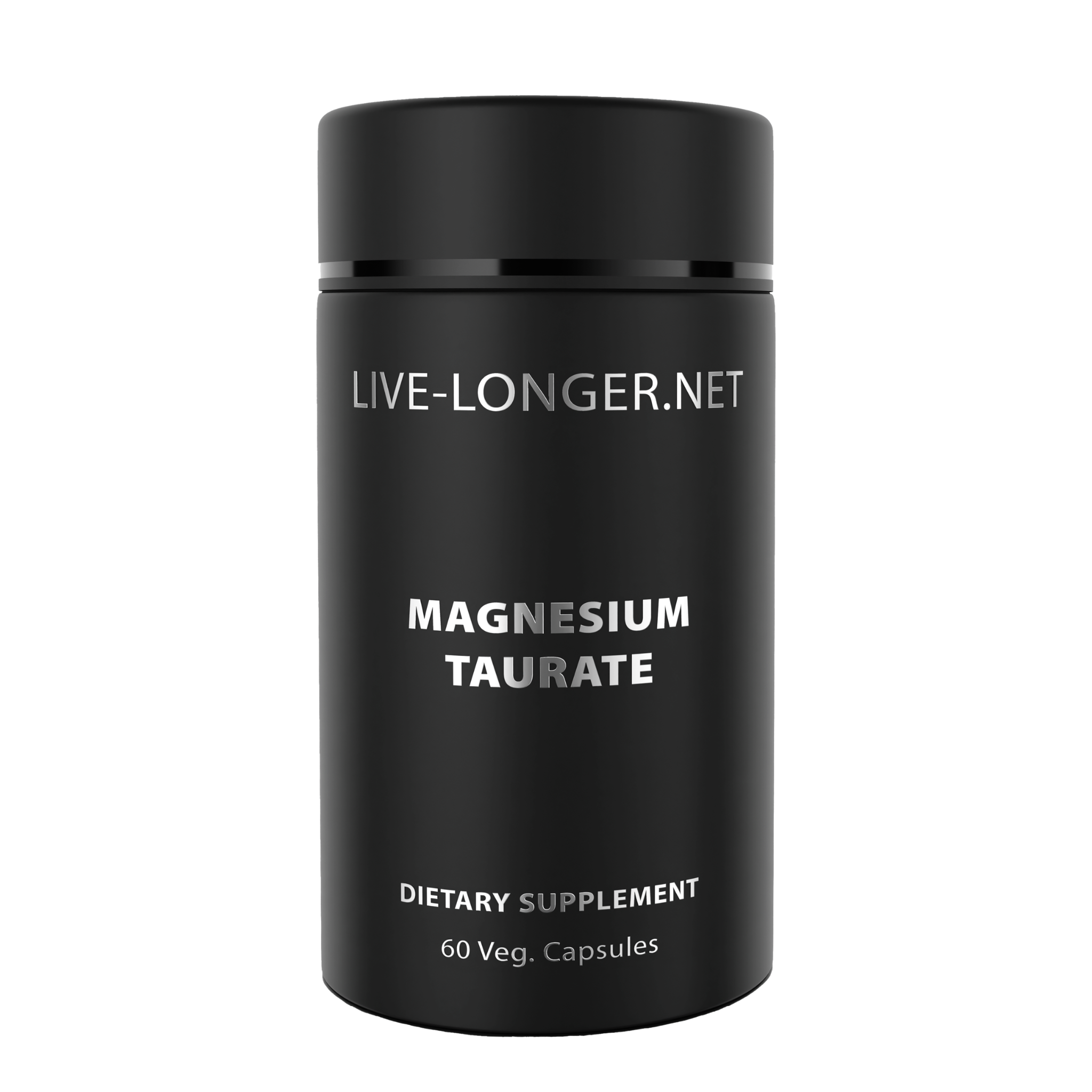The liver doesn't always get the credit it deserves, but it's one of the hardest-working organs in our body. It scrubs away toxins, processes nutrients, and helps regulate blood sugar levels. In today's fast-paced world, maintaining a healthy liver can be a challenge, with modern lifestyles putting extra stress on this vital organ.
With unhealthy diets, sedentary lifestyles, and environmental pollutants, it's no wonder many people are seeking the best supplements for liver health to support this hardworking organ. But can supplements really make a difference?
In this article, we'll discuss how liver health is affected by our modern world, why it's so crucial, and what we can do to help.
How Is Liver Health Affected in the Modern World?
Our modern world is full of liver stressors. From processed foods and sugary snacks to environmental pollutants and alcohol, your liver is likely busier than ever. Take a second and think about your last meal: Was it fresh and wholesome or maybe a little on the greasy side? The liver is responsible for processing all of this, and when the diet is filled with highly processed foods, it struggles to keep up.
A sedentary lifestyle doesn't help either. Sitting for long hours—whether it's in front of a computer, TV, or during a commute—slows down the body's metabolism and forces the liver to work overtime to break down fats and toxins. Add to this mix the cocktail of pollutants from the air we breathe and the products we use daily, and it's easy to see why our livers need a little extra attention.
And let's not forget about alcohol. While the occasional drink might be a harmless way to unwind, regular alcohol consumption can severely tax the liver's ability to detoxify. Studies have shown that excessive alcohol intake leads to conditions like fatty liver disease and cirrhosis. With all these factors at play, it's no wonder people are seeking the best supplements for liver detox and support (1).
In short, between environmental toxins, poor diets, and inactivity, our livers are under more pressure than ever. Thankfully, there are ways to support liver health, and it starts with understanding just how important this organ is.
Why is Liver Health Important?
Here's why the liver is one of the most important organs in our body (2).
The liver is the body's natural detox center, responsible for filtering out harmful substances from our blood. Without a healthy liver, toxins build up, and that can lead to serious health issues.
Beyond detoxification, the liver plays a critical role in metabolism. It helps break down fats, proteins, and carbohydrates, turning them into energy we need to go about our day. Ever feel sluggish after a heavy meal? Your liver is hard at work converting nutrients while you're contemplating a nap. This organ also helps regulate blood sugar, which is essential for maintaining energy levels and preventing conditions like diabetes.
But that's not all! According to studies, impaired liver function can weaken the immune system, leaving us more susceptible to infections (3). That's why maintaining liver health through a balanced lifestyle and using the best supplements for liver function is essential to long-term well-being.
What Can We Do About It?
The good news? Supporting liver health doesn't require a complete life overhaul—just a few smart choices. First and foremost, what you eat plays a huge role in liver function. A diet rich in whole foods like fruits, vegetables, and lean proteins can work wonders. Cutting back on processed foods, refined sugars, and trans fats will reduce the workload on your liver.
Physical activity is another key player in liver health. Regular exercise not only helps maintain a healthy weight but also boosts your liver's efficiency at metabolizing fat and removing toxins. And before you ask, yes, even moderate activities like walking or swimming count! In fact, studies show that regular exercise can reduce the risk of non-alcoholic fatty liver disease (NAFLD), a growing concern in today's sedentary world (4).
Let's talk about hydration: drinking enough water is crucial for flushing toxins from the body, including those processed by the liver. If you're not already sipping water throughout the day, consider this your gentle reminder to start. Your liver will thank you!
Finally, detox practices such as intermittent fasting can help give your liver a break from constantly processing food. This doesn't mean extreme juice cleanses but rather healthy fasting intervals that allow your liver to repair and regenerate.
While lifestyle changes are key, incorporating the best supplements for liver health can take these efforts further. We'll get to those next, but for now, remember,
"small changes can make a big difference."
Simple Lifestyle Modifications
When it comes to supporting liver health, sometimes the simplest changes make the biggest difference. Here are a few lifestyle tweaks that can give your liver a much-needed boost:
Eat a Balanced Diet
Prioritize fresh fruits, vegetables, lean proteins, and whole grains. Avoid overly processed foods and excessive sugar, which place additional stress on the liver.
Move Your Body
Regular physical activity, even something as simple as a 30-minute walk, can improve liver function by promoting fat breakdown. If you're not into intense workouts, no worries—a gentle stroll can still give your liver a helping hand!
Manage Stress
Stress isn't just bad for your mind; it's bad for your liver, too. High-stress levels can impair liver function over time. Incorporating relaxation techniques like yoga and meditation can keep your liver in tip-top shape.
Limit Alcohol
Yes, that occasional glass of wine might be fine, but limiting alcohol intake is one of the best things you can do for your liver.
Remember, small lifestyle modifications combined with the best supplements for the liver can create a holistic approach to liver care.
Best Supplements for Liver Health
When lifestyle changes aren't quite enough, certain supplements can provide that extra boost your liver needs. The best supplements for liver health target inflammation, promote detoxification and help regenerate liver cells. Let's explore the most proven options that can support your liver in its daily tasks.
Berberine
Berberine is a compound found in several plants, most commonly barberry. It's been used for centuries in traditional Chinese and Ayurvedic medicine to treat various ailments, but more recent studies have shown its powerful benefits for liver health.
Berberine's real magic lies in its ability to improve insulin sensitivity and reduce fat buildup in the liver. In fact, research has shown that berberine can help decrease liver fat in individuals with non-alcoholic fatty liver disease (NAFLD) (5).
Trimethylglycine (TMG)
Trimethylglycine (TMG), often derived from beetroot, is a liver-supporting powerhouse. TMG works by aiding in methylation, a process essential for detoxification and liver function. It helps the liver break down harmful toxins, including homocysteine, a compound that can damage blood vessels and is linked to cardiovascular disease (6).
Taurine
Taurine is an amino acid that plays a crucial role in bile production, and it is essential for digesting fats. Without enough taurine, the liver struggles to produce adequate bile, leading to fat accumulation and sluggish detoxification. Luckily, taurine supplements can help with that.
Research has shown that taurine acts as a powerful antioxidant, protecting liver cells from oxidative stress. It also improves bile flow, which is essential for proper digestion and detoxification (7).
Resveratrol
You've probably heard about resveratrol's anti-aging benefits, but did you know it's also great for your liver? Studies have revealed that resveratrol can reduce liver inflammation, making it particularly helpful for those with fatty liver disease or liver injuries. It works by activating pathways that promote cell survival and reduce oxidative stress, thus protecting liver cells from further damage. Plus, it helps the liver regenerate, promoting healthy new cells (8).
The Bottom Line
The liver may be one of the most underrated organs in our bodies, but it works tirelessly to keep us healthy and toxin-free. In today's world, where processed foods, pollutants, and sedentary lifestyles put extra strain on the liver, taking care of it has never been more important. Simple lifestyle modifications—like a balanced diet, regular exercise, and stress management—can go a long way. But to really support liver health, the best supplements for liver health can provide that extra boost.
Whether you're looking to detox, reduce inflammation, or support fat metabolism, these supplements have been scientifically proven to help. So, give your liver the love it deserves—after all, it's been quietly taking care of you since day one. And who knows? With a healthier liver, you might just feel like you've got a new lease on life!
References
- Osna NA, Donohue TM, Kharbanda KK. Alcoholic Liver Disease: Pathogenesis and Current Management. Alcohol Research : Current Reviews [Internet]. 2017;38(2):147. Available from: https://pmc.ncbi.nlm.nih.gov/articles/PMC5513682/
- NCBI. How does the liver work? [Internet]. Nih.gov. Institute for Quality and Efficiency in Health Care (IQWiG); 2016. Available from: https://www.ncbi.nlm.nih.gov/books/NBK279393/
- Alicja Dąbrowska, Bartosz Wilczyński, Mastalerz J, Kucharczyk J, Julita Kulbacka, Szewczyk A, et al. The Impact of Liver Failure on the Immune System. International Journal of Molecular Sciences [Internet]. 2024 Sep 1 [cited 2024 Oct 18];25(17):9522–2. Available from: https://www.mdpi.com/1422-0067/25/17/9522
- Barrón-Cabrera E, Soria-Rodríguez R, Amador-Lara F, Martínez-López E. Physical Activity Protocols in Non-Alcoholic Fatty Liver Disease Management: A Systematic Review of Randomized Clinical Trials and Animal Models. Healthcare [Internet]. 2023 Jan 1 [cited 2024 Oct 18];11(14):1992. Available from: https://www.mdpi.com/2227-9032/11/14/1992
- Koperska A, Agnieszka Wesołek, Małgorzata Moszak, Szulińska M. Berberine in Non-Alcoholic Fatty Liver Disease—A Review. Nutrients [Internet]. 2022 Aug 23 [cited 2024 Oct 18];14(17):3459–9. Available from: https://www.ncbi.nlm.nih.gov/pmc/articles/PMC9459907/
- Ganguly P, Alam SF. Role of homocysteine in the development of cardiovascular disease. Nutrition Journal [Internet]. 2015 Jan 10 [cited 2024 Oct 18];14(1). Available from: https://www.ncbi.nlm.nih.gov/pmc/articles/PMC4326479/
- Song Q, Guo J, Zhang Y, Chen W. The beneficial effects of taurine in alleviating fatty liver disease. Journal of Functional Foods [Internet]. 2021 Feb [cited 2021 Jan 20];77:104351. Available from: https://www.sciencedirect.com/science/article/pii/S1756464620305752
- Izzo C, Annunziata M, Melara G, Sciorio R, Dallio M, Masarone M, et al. The Role of Resveratrol in Liver Disease: A Comprehensive Review from In Vitro to Clinical Trials. Nutrients [Internet]. 2021 Mar 1 [cited 2024 Oct 18];13(3):933. Available from: https://www.mdpi.com/2072-6643/13/3/933









